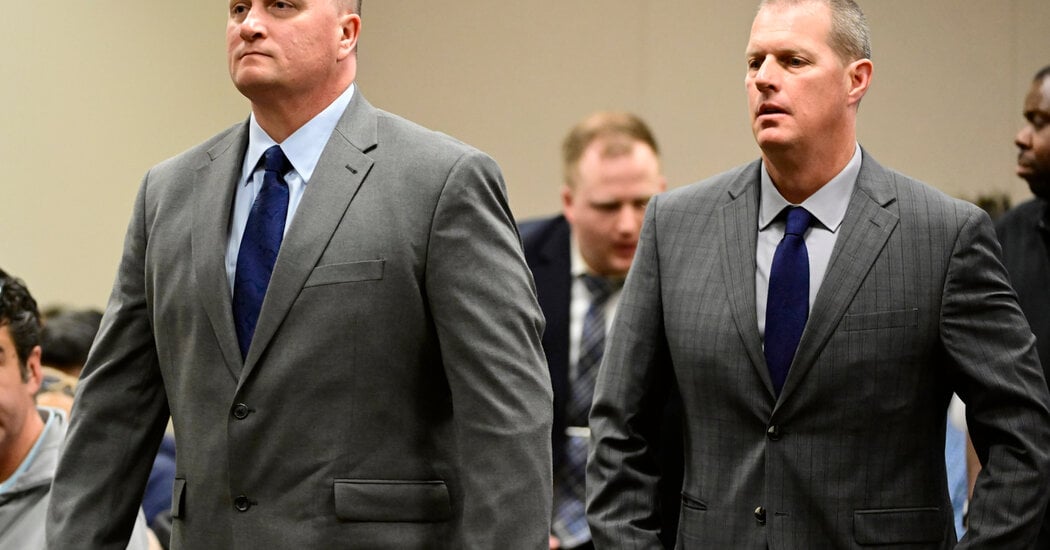Two Colorado paramedics were convicted of criminally negligent homicide in the 2019 death of Elijah McClain, a young unarmed Black man whose case drew national attention and forced public safety reforms in the city where he lived and died.
A mostly white jury found the paramedics, Peter Cichuniec and Jeremy Cooper, guilty of a more serious charge they faced. But the jury split on two lesser assault charges: They cleared Mr. Cooper of both assault charges, but convicted Mr. Cichuniec of one of those charges, second-degree assault for the unlawful administration of drugs.
The men had injected Mr. McClain with the powerful sedative ketamine while he was in police custody in Aurora, Colo., which doctors said left him near death. He died days later in the hospital.
The trial was a rare prosecution of paramedics, and raised the question of the role that medical personnel play in police encounters and whether they could be held criminally responsible for their actions.



If that is what happened, yes I agree that they are wrong and grossly negligent. What I find hard to believe is there is a department that would allow Ketamine to be given without monitoring capnography. Capnography would have alerted them that he stopped breathing within 15-30 seconds. The only details that are provided are too much medication was given and he died. Not monitoring capno would have made this an open and shut case.
The other reason I don’t jump on it’s their fault is because we follow something called “just culture” which says when an error is made we have to look at the totality of the circumstances and we console human error, coach reckless behavior and punish negligence. I wasn’t involved in any case reviews and I wasn’t on the jury. I don’t know the full circumstances so I’m going to remain impartial and let the jury’s verdict speak for itself.
I don’t think we’re being asked to believe that, as if that was the case the people in charge of policy would have been negligent, not the paramedics.